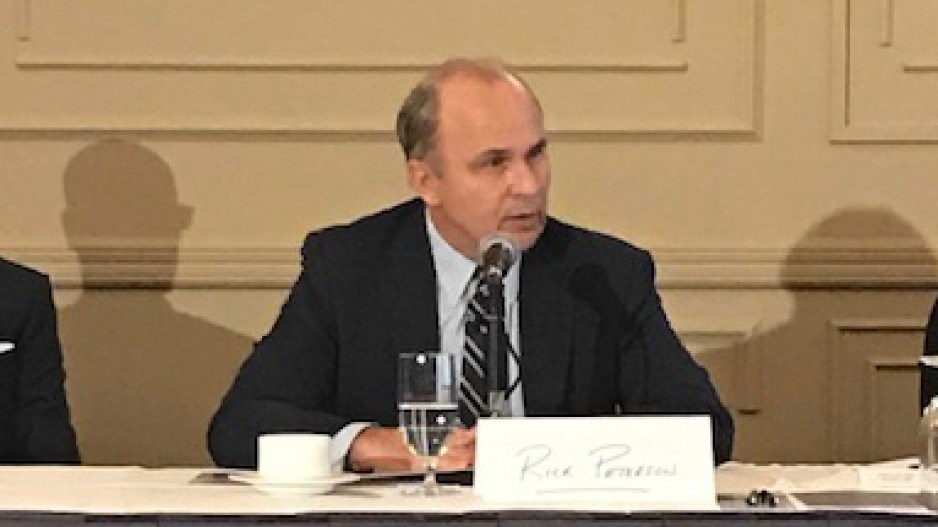Albertans were already angry – with B.C., with Quebec, and Justin Trudeau – even before Canadians gave Trudeau a second chance in the form of a minority government in the recent federal election.
And now they’re really angry – and hurt. Saskatchewan is mad too. A lot of the anger has to do with energy and climate change policies, including a national carbon tax. They feel Trudeau has done too much on one file and not enough on the other.
Though Trudeau’s government was reduced to a minority, the fact Canadians didn’t toss the Trudeau government out entirely appears to be viewed by some Albertans as a betrayal by the rest of Canada.
Why would Canadians re-elect a government that cares so little about Alberta?
The fact the Trudeau government bought a pipeline, the twinning of which is actually now under construction, doesn’t seem to count for much right now in Alberta, where talk of western alienation and even separatism is once again a thing, though not a thing anyone takes very seriously, at least not in the same way that Quebec separatism is taken seriously.
In an attempt to try to bridge the “archipelago of envies” that Keith Spicer so aptly described in 1982 during the last bout of regional alienation, Suits and Boots – an Alberta-based, pro-resources grassroots organization – plans to hold a series of dialogues, called Face to Face, across Canada, in an attempt to help Canadians better understand each other and resolve their regional differences.
It started Friday, November 15, in Vancouver, where four British Columbians of varying backgrounds were asked to speak about Alberta and Canada’s resource sectors.
Suits and Boots founder Rick Peterson, president of Peterson Capital, said “the pain and the hurt in Alberta is deep.” Alberta’s economy is suffering, thanks in part to low oil prices, though Albertans also blame Trudeau and British Columbia’s John Horgan government for policies and attitudes that they view to be distinctly anti-oil and anti-Alberta.
Delays in getting pipelines built, a national carbon tax, a moratorium on oil tanker traffic on B.C.’s north coast, and a new environmental act that Premier Jason Kenney has dubbed the “no-more-pipelines bill” all add insult to injury.
Stewart Muir, executive director for Resource Works, said resource industries in general in Canada – not just Alberta’s oil sector – are facing a “crisis of confidence” due to increasing government regulation and environmental and social licence issues.
Sandy Garossino, national affairs columnist for the National Observer, who grew up in Alberta, said “there is a lot of hot air blowing out of Alberta,” and that Alberta’s premier is running the risk of being tuned out, as a result.
“Jason Kenney is at serious risk of having Canadians tune him out, because he’s just mad all the time about everything,” she said.
Kenny has lately been threatening to pull Alberta out of the Canada Pension Plan, and hold a referendum on equalization.
Garossino suggested Albertans may be a bit overwrought. After all, Canadians appeared to have voted for both pipelines and strong climate change policies in the recent federal election.
“There was an election on climate change, “ she said. “And Canadians voted across party lines by a plurality for climate change. And they also voted for parties – more than two-thirds – that wanted to advance Alberta’s pipeline’s aspirations. So why are we in crisis?”
She added that she thought former Alberta Premier Rachel Notley and Trudeau could have done a better job of selling the Trans Mountain pipeline expansion project to British Columbia as part and parcel of Alberta’s and Canada’s climate change plans.
“I come out in support of TMX because I’m an Albertan and because I’m a Canadian, and I want to support Canadians,” she said. “But it makes it really hard when we’re getting attacked all the time over carbon taxes and climate initiatives.”
Markham Hislop, who writes about energy for EnergiMedia, said some of the oil majors in Alberta understand the challenge of the coming energy transition, have been busy trying to reduce the emissions intensity of the oil sands, and that, as a result, “they have earned the right to a pipeline.”
However, more broadly, he characterized Alberta as being in a state of denial over – and unprepared for – the energy transition that will come from climate change policies and technological change.
“There’s a tremendous amount of technological change happening in the electrification of transportation,” he said. “And 60 to 70 per cent of oil goes into transportation. And we don’t talk about that.
“That – not pipelines, not climate policy, not Trudeau being in the prime minister’s chair – that, the energy transition, is the existential threat Alberta is facing today.”
First Nations voices being heard
One voice that was not heard in the 1980s, the last time Alberta alienation flared up, was that of First Nations.
While some First Nations oppose energy projects, like the Trans Mountain pipeline, others in B.C. and Alberta support the energy industry. Ellis Ross, former Haisla First Nation chief and current Liberal MLA, is an unapologetic booster of the LNG industry. He points to prosperity in his own community in Kitimat as an example of the benefits that come to First Nations working with industry, and the growing importance of First Nations in resource projects.
But he said there is a level of energy “illiteracy” in Canada that makes it difficult to even have a conversation about it. He added politicians may not even feel comfortable having an honest discussion about energy and climate change policies.
“Politicians are afraid to speak against the narratives,” he said.
The next Face to Face dialogue will be held in Toronto November 21. At the end of the nation-wide tour in March 2020, Peterson plans to summarize what was heard in dialogues across Canada and present it to the federal government.



